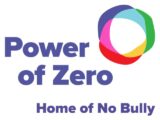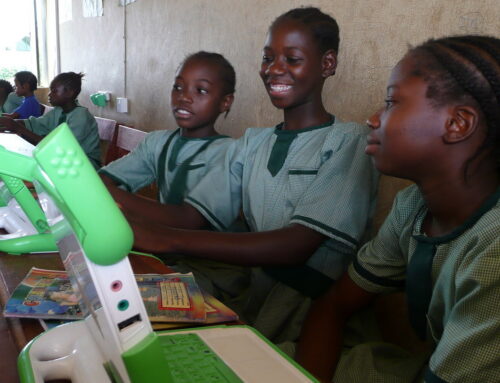I grew up online, part of the first generation to have access to the internet from the beginning of my life. We lived in a small Turkish suburb on the outskirts of Istanbul. Due to the socially distant nature of our suburb and my parents working long hours, I would spend many hours after school online, watching videos on YouTube, playing online games and finding my way around the internet on the family computer. With the added benefit of learning English earlier than my peers, and being instilled in a global culture, the internet shaped my sense of humor and personality.
By the time I could understand what a political party was, the Justice and Development Party (known as AKP in Turkey), with its conservative, capitalist and Islamic values, had become synonymous with life in Turkey for everyone around my age. What the internet allowed me to see was another kind of politics, in another place, and sometimes even another time, which was crucial for my intellectual development.
Three clicks from radicalization
Before that could happen, however, I had my own close encounter with radicalization. It was 2014, the same year as Gamergate. I was deep into my teenage years and even deeper into video games. Not having any understanding of what feminism was made it easy for me to get agitated by what I was being told by alt-right figures. I came across people who seemed passionate about what I was passionate about and they were telling me that feminists were out to destroy what we loved doing.
I was three clicks away from radicalization and found myself being swept along the pipeline into more extreme narratives. Without realizing it, I was opposing feminism because I loved video games. My saving grace turned out to be the very thing that started leading me down the pipeline. Video essays by left-leaning commentators on the issue like “hbomberguy” or “PhilosophyTube” gave me a more nuanced perspective on the issue and disillusioned me with the alt-right narrative. From there, I found an online community that was not built on exclusion, but on a communitarian goal of how we can fight against injustice.
My deradicalization was a tough wake up call. I only then realized how much anger I had been building up for an imaginary issue, and how that anger was consuming me. What was even more upsetting for me however was seeing my friends go down the same path. Being told to be angry towards people they never met. I tried to share my experience with them, which helped for some. Others, sadly, gave into their anger, slowly alienating themselves from me and our general community. At the age of 14 I had already started losing friends to alt-right radicalisation.
Radicalization is not confined to Islamic extremism
Radicalization is often associated with the grooming of teenagers into joining radical Islamist groups, especially in the context of Turkey. However the generally accepted definition of radicalization extends beyond this and refers to the process through which individuals or groups adopt extreme political, social, or religious ideologies. The concept of radicalization has roots in various disciplines, including sociology, psychology, political science, and criminology. It gained prominence in the context of terrorism studies and counterterrorism efforts. While Islamic radicalization is indeed significant, radicalization can occur within multiple ideological contexts.
A particularly troubling form of radicalization is the spread of misogyny and aggressive attacks on anything that can be perceived as feminist. Last month researchers from University College London and the University of Kent reported that they had detected a four-fold increase in the level of misogynistic content suggested by TikTok over a five-day period of monitoring, as the algorithm served more extreme videos, often focused on anger and blame directed at women. Another team of researchers found that boys and men from Generation Z are significantly more likely than older baby boomers to believe that feminism has done more harm than good and a fifth of those who have heard of the social media influencer Andrew Tate look favorably upon him.
To understand radicalization, you need to understand how algorithms are designed to promote divisive content. According to Dr. Kaitlyn Regher, Associate Professor at University College London, “Algorithmic processes on TikTok and other social media sites target people’s vulnerabilities – such as loneliness or feelings of loss of control – and gamify harmful content… As young people microdose on topics like self-harm, or extremism, to them, it feels like entertainment.”
The alt-right has been particularly adept in radicalization
Radicalization takes many forms, including far-right extremism, far-left extremism, eco-terrorism, white supremacy, and separatist movements. These ideologies find traction and reinforcement through various online platforms, social media channels, extremist websites, and offline networks.
The alt-right has been particularly adept in radicalizing teenage boys and young men. Originating from movements like “Gamergate,” which targeted women in the video game industry, this trend has evolved into a more pervasive online phenomenon with figures such as Richard Spencer and Milo Yiannopoulos using their platforms to promote extremist ideologies and challenge mainstream political discourse. Their social media presence facilitates a radicalizing loop, amplified by the platform algorithms.
The 2016 US Presidential Election marked a significant shift in political discourse, both online and offline. It’s too simplistic to place the responsibility on one man or one Twitter account. As Derek Robertson writes
“Trump’s Twitter account didn’t do anything novel in its own right. But it exemplified, at the largest possible scale, the twisted incentives at the heart of the platform that gave it life: to generate spectacle and action without regard for truth, context, or collateral damage.”
Why are youth susceptible to extremist rhetoric?
Youth radicalization through online media has intensified since 2016, with influencers such as Andrew Tate gaining traction with misogynistic and conservative messaging. This trend raises critical questions about the role of platforms in facilitating radicalization and why young people gravitate towards extremist rhetoric.
Gilles Deleuze, a French philosopher renowned for his work in post-structuralism and critical theory, theorized in his Postscript on the Societies of Control how a digitalised world shapes and influences our behavior, preferences, and ultimately our sense of self. In this “society of control,” our identities are increasingly molded by the information and content we encounter online. Deleuze was writing in the 1980s when the Internet was still in its early days but his thinking has implications for the current generation of youth, who, with limited life experience and critical thinking skills, are especially susceptible to digital platform influences. Lacking a nuanced understanding of platform operations and content motivations, young people may uncritically adopt ideologies, including hateful or extremist viewpoints. This underscores the importance of digital literacy, critical thinking skills, and proactive measures to mitigate the risks associated with online radicalization among youth.
While algorithmic preferences do explain how radicalizing content gets pushed, they don’t entirely explain why youth are so easily susceptible to the adoption of harmful ideologies. Understanding radicalization involves examining the factors and mechanisms that lead individuals to adopt these extreme beliefs, including social, economic, political, and psychological influences. It’s a complex process influenced by a range of factors, including social alienation, perceived injustices, group dynamics, propaganda, and personal grievances.
George Monbiot, writing in the Guardian, characterized this type of identity formation as the “Extrinsic Personality”.
“People at the extrinsic end of the spectrum are more attracted to prestige, status, image, fame, power and wealth. They are strongly motivated by the prospect of individual reward and praise. They are more likely to objectify and exploit other people, to behave rudely and aggressively and to dismiss social and environmental impacts. They have little interest in cooperation or community. People with a strong set of extrinsic values are more likely to suffer from frustration, dissatisfaction, stress, anxiety, anger and compulsive behaviour.”
Online communities are not the problem
It would be a hasty response to dismiss online communities as the problem. Online communities can help youths from marginalized groups to feel less alone, and more empowered. This is especially true for LGBT kids, who without an online community might not have anyone to share their identity with.
According to Pew Research, Gen Z still seems to be the most progressive generation as a whole. While the effects of radicalization are a damaging threat, it is not an irreversible one. Identities built on hatred and resentment which are facilitated by negative communities are not static. As my generation comes to terms with the incongruence of their extrinsic identities, they are more likely to end up in communities of care which their peers in the majority already facilitate. In the end, an identity based on exclusion is much harder to maintain than an identity which one feels at home with.
Baris is currently getting his Master’s degree from Birkbeck University in Psychoanalytic Studies. His research areas include non-linguistic communication and materialism. Besides academia, he is a songwriter and enjoys writing poetry. The opinions expressed in this article are solely those of the author and do not necessarily reflect the views or opinions of Power of Zero. We value diverse perspectives and welcome the opportunity to publish a range of views from youth and adults alike on our platform.







Leave A Comment